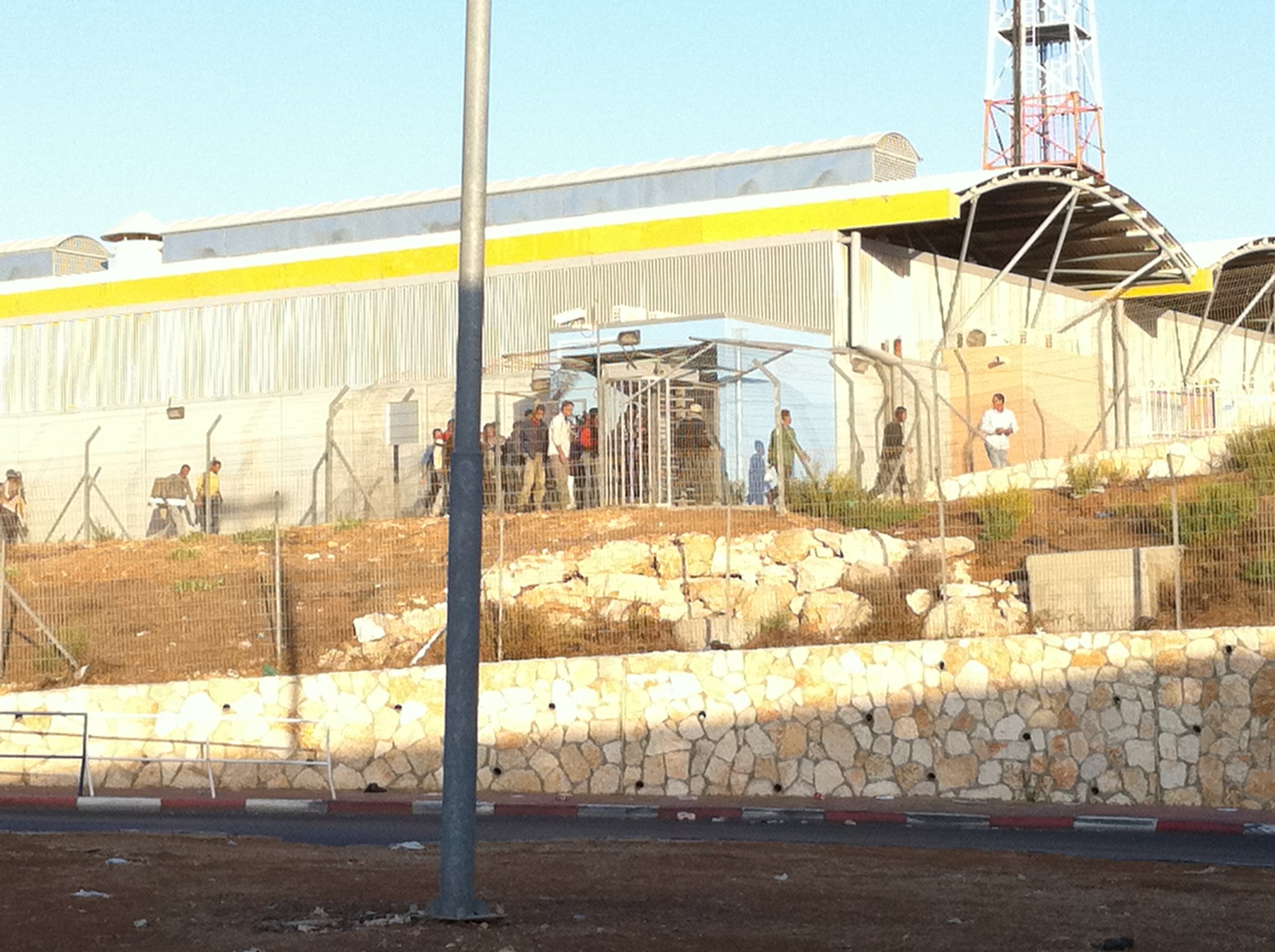Every Wall Has Two Sides
George Orwell would have a field day with this place. Things are rarely evident at face value, labels are used for things that mean the exact opposite, and the layers of interpretation are so thick you can build a nation on it. That being said, there are some things that come across as so patently obvious that they cannot escape comment. My current list is three, moments of crystal clear (at least in my mind) cognitive dissonance:
The crowded, narrow streets of Deheisheh Refugee Camp.
1) Camping, Camping Everywhere and Not a Tent to See: A week ago, we toured Deheisheh refugee camp on the outskirts of Bethlehem. Established to absorb some of the 800,000 Palestinian refugees displaced by the creation of the new State of Israel in 1948. Initially, the camp was a tent city, and remained so for several years until the UN provided each family with a small one room house. 62 years later, continuing in their seemingly permanent limbo, the refugee community has added onto the hovels to provide space for successive generations. Now, the place is overcrowded, the streets are narrow and cracked (if paved). It is, to put it bluntly, a slum. One week later, we stood on an overlook outside of Bethlehem, taken there by an Israeli security expert. Apparently not knowing our itinerary up to that point, he pointed out Deheisheh. "It's not really a camp, though," he said. "It's a neighborhood just like any other." the collective skepticism of the group went off the scale.
An Israeli settler walking through East Jerusalem.
2) A Tale of Two Playgrounds: We drove through Silwan, a Palestinian village outside Jerusalem, trash strewn everywhere (no such city services are provided), houses built out of plain concrete, not a sidewalk in sight. As we drove up the narrow streets, we passed a flat space cleared of rubble, where a few kids were kicking a soccer ball around. The area was lines with rocks so the ball wouldn't roll off and go plunging down into the valley/gorge/trash dump. Not more than a hundred yards up the street, we approached Nof Zion, an Israeli "neighborhood" in East Jerusalem. The streets were wide, public transportation was readily available, the streets were wide, plus sidewalks, and spotless. Several children played in a fenced in playground with new slides, jungle gyms, and a soft green ground cover. You wonder what might happen if the kids were left to their own devices without parental infection.
Palestinian laborers passing through the Israeli checkpoint at the Wall.
3) Walls, Walls, Everywhere the Walls: No one in the Palestinian side of the Wall took us on a tour of it. No one had to. The barbaric 30 foot tall structure practically speaks for itself. Houses are crammed up as close to the barrier as possible; open agricultural land sits empty on the other side of the wall, separated from those who own and farm it. It cuts down the middle of streets, snakes this way and that to include this Israeli settlement and exclude that Palestinian village (in the example above, though, both play areas are on the same side of the wall and governed by the same Jerusalem municipality). As our security guide described it, he called it a fence (for the record, most of its length is fence; but most of the population is confronted with the hideous concrete), and described the many humanitarian conditions built into the structure to minimize the negative impact on the civilian population, such as agricultural gates and checkpoints. The reality of these things is very different, of course, and inconveniently, perhaps, nowhere in international law can security be an excuse for impeding freedom of movement, which a basic human right.
There is plenty of blame to go around in the perpetuation of the conflict. Mentalities and denials of the other, veiling either subtle indifference or outright aggression as self-defense, even the simple fact of old patterns all add fuel to a fire that needs very little stoking. As if I needed to be reminded of all this, our taxi driver on the way to the airport helped me out. It began as a pleasant enough conversation about family and home life and the like. And then, as if a switch flipped, we were suddenly on unpleasant ground. His all-too-familiar list of Palestinian grievances against Israelis suddenly kicked into overdrive, overstating the pro-Israel lobby's power in DC, wondering outloud why the Holocaust museum focuses only on Jews, and then topping it all off with the obscene statement that "no Jew anywhere at anytime has done anything good for anybody." All the peace movement folks we met, he said, aren't really for peace. They're just liars.
Yes, there is plenty of toxicity to go around. And the longer that walls, both real and metaphorical, persist, the faster and further these cancers will spread. When the cognitive dissonance runs as deep as these examples show, there is a thread of the prophetic observation that people are proclaiming peace while the world is in flames.
Bleak? Yes. But all the more reason for those of us willing to cross these barriers to build bridges that bypass the walls. That's the hope and the challenge that will disturb and motivate me on the flight home.



